
This is the English translation of a Turkish language article that was originally published by AVİM on 22 October 2024.
Relations between Türkiye and the People’s Republic of China (PRC) began in 1971 under the influence of Cold War conditions. These relations, however, were overshadowed during the 1980s and 1990s by different views of the parties on various international issues such the Uyghur Question and particularly Cyprus Question.[1] In the 1980s, a cooperation agreement was signed in the field of economy and industry and the first high-level official visits took place. In 1990s, alongside the Uyghur Question, the foreign policy approach developed by Türkiye with the end of the Cold War era regarding the new states formed as a result of the dissolution of Yugoslavia and the Soviet Union led to some disputes in relations with China.[2] Beginning in the mid-1990s, high level contacs were made again. In 1998 Türkiye restricted the activities of Uyghur associations and the impact of the Uyghur issue in the Türkiye-China relations subsequently decreased.[3] With the effect of China's integration into the global trade system in the 2000s, the relations between the two countries have gained momentum in the economic and commercial fields. Various economic cooperation issues such as mining activities, high-speed train project, and China's proposal to enter into a nuclear power plant tender between Türkiye and China were raised in this period.[4]
Events in The Urumqi events in the year 2009 had negative impact on Türkiye and China relations. Since 2010, relations between the two countries have started to get closer again with high-level visits. First, Chinese Premier Wen Jiabao visited Türkiye in 2010 and Xi Jinping- the-Chinese Vice President at that time-visited Türkiye in 2012. In 2012 and 2019, Turkish President Recep Tayyip Erdogan visited Beijing, and also Mr. Erdogan and Mr. Xi met during BRICS and G20 Summits. The most important development in this period was the signing of the “Joint Declaration on Strategic Cooperation Relations” in 2010. The goals of this Declaration are to strengthen economic relations, overcome political disagreements, and develop a common global vision.[5] China, which prefers to establish hierarchical “partnerships” by using more than forty different classifications instead of traditional alliance relations in its diplomatic relations, has defined its relations with Türkiye as a "strategic partnership.”[6] Thus, economic and political relations between Türkiye and China have begun to strengthen since the 2010s. The Chinese Ministry of Foreign Affairs states that 2013 was the year in which relations between the two countries gained momentum.[7] 2013 marks the year when Chinese President Xi announced his signature initiative; the “Belt and Road Initiative” (BRI). From this perspective, it can be argued that the economic factor playing a role in the rapprochement between Türkiye and China during those years was the announcement of the BRI. The BRI is shaped around principles such as connectivity, win-win cooperation, people-to-people bonds, and civilizational partnership. It aims to provide regional integration between China and BRI participant countries through infrastructure investments, creating economic corridors, trade routes, logistics centers, underwater communication cables, and digital networks, alongside the Economic Belt of the Silk Road and the 21st Century Maritime Silk Road, as well as the Arctic Silk Road and the Digital Silk Road.
In 2015, China announced the BRI Vision Document, and Türkiye became a participant in the same year. The BRI consists of a fragmented structure based on the principle of aligning the long-term economic and commercial vision goals of participant countries with China’s objectives. In this context, the infrastructure investments that were brought up between the two countries in the early 2000s have re-emerged, and Türkiye has sought to align its vision and goals accordingly. Türkiye's "Trans-Caspian-Middle Corridor" project, with its complementary feature in terms of the China-Europe connection, has been harmonized through the agreement signed between the two countries in 2015 with the BRI and Türkiye's "Middle Corridor" project.[8] Türkiye participated in the Belt and Road Summit held in 2017 and became one of the founding members of the Asian Infrastructure Investment Bank.[9] In 2017, the Baku-Tbilisi-Kars railway became operational, and in 2019, the first freight train service between Türkiye and China was commenced in December 2020.[10] Other investments made by China in Türkiye under the BRI can be include the Ankara-Istanbul high-speed train project implemented by China Railway Construction Co., İstanbul Kağıthana-Airport railway implemented by CRRC Zhuzhou Locomotive Co., and Kumport port acquired by a tripartite consortium consisting of COSCO Shipping Port Ltd, China Merchants Port Holding and China Investment Corporation.[11]
When we examine the political factors that play a role in the convergence of Türkiye and China relations in recent times, we can observe that there are systemic and regional developments that are causing the two countries to become closer. First of all, developments such as the US-China competition in the international system, efforts for multipolarity, and the increasing influence of new formations such as BRICS have all created new areas of cooperation for Türkiye as a regional power. On the other hand, it is being argued that some of the problems Türkiye has with the West have caused it to become closer to China and accelerate its cooperation.[12] It should be noted that Türkiye and China have some differences of opinion on international issues such as the Cyprus Question, the Syrian War, and cross-border operations. However, despite the stated differences of opinion, as can be seen from the recent high-level mutual visits, both sides desire to develop economic and trade relations.
With the effect of the BRI’s initiation, and under the leadership of different actors as a reflection of the geopolitical and geoeconomic competition in the international system, new economic and commercial corridors, port and infrastructure investments such as EASTMED, IMEC, Build Back Better World (B3W), Development Road have been proposed. On the other hand, cases such as the Russia-Ukraine War, the October 7 Gaza War and in its aftermath, and the attacks in the Red Sea that have disrupted global maritime trade have all caused impediments for some economic corridors, especially the Northern Corridor of BRI and EASTMED. In this contex, as mentioned in previous article published by AVİM, the Middle Corridor continues to provide a safer route specially in terms of BRI and Türkiye-China relations.
Another development at the regional level is that the developments in the Turkish military forces and the defense industry have brought new military and security cooperation with regional countries such as Kazakhstan and Uzbekistan after the Karabakh War.[13] Similarly, China is closely following the Turkish defense industry, as can be seen by its interest in the recently held Turkish defense industry exhibition.[14] In this context, Türkiye has improved its close political, economic and cultural relations with the Central Asian countries, as well as its military and security relations. Considering its multidimensional relations with the Central Asian countries within the framework of the Organization of Turkic States and the Turkic World Vision 2040, Türkiye stands out as an actor that will strengthen Chinese relations with the Central Asian countries.
High level contacts between Türkiye and China continued during 2023 and 2024. During the visit of Chinese Foreign Minister Wang Yi to Ankara in 2023, the establishment of a “High-Level Working Group Meeting” to accelerate the harmonization of the Middle Corridor and the BRI was discussed. The Turkish Minister of Foreign Affairs Fidan, in his speech during a visit to Beijing in July 2024, emphasizing Türkiye’s geostrategic position, stated that it provided to access opportunities within a large value market worth 28 trillion stretching from Central Asia to Europe. These statements are an indication that China can benefit from this access opportunity thanks to Türkiye. Mr. Fidan drew attention to the harmony between the Middle Corridor and BRI and emphasized the importance of also creating harmony by taking advantage of the “connectivity” between the Development Road and the BRI.[15] In this context, if the integration of the Development Road with the Middle Corridor is achieved, it is possible for Türkiye to contribute to trade with Chinese trade relations with the Middle East as well as Central Asia. During President Erdogan's meeting with President Xi during the SCO summit in July 2024, the sides discussed the willingness fort he Chinese enterprises to increase their investments in Türkiye and promoting of bilateral tourism relations.[16] In addition, there are opportunities for cooperation in green areas such as solar power plants, offshore wind turbines, and nuclear energy, in which China is a pioneer.[17]
Another dimension of bilateral relations in the recent period is the issue of Türkiye's BRICS membership. BRICS, which took steps in the field of finance by establishing a new Development Bank in 2015 and by encouraging the use of national currencies, has increased the number of members as a result of experiencing its second expansion due to the South Africa Summit in 2023. Thus, BRICS has become an important dialogue platform representing a significant part of the Global South in terms of population and economy. The announcement that more than thirty countries, including countries such as Malaysia and Sri Lanka, are preparing to participate in the BRICS summit, which will take place in Kazan between October 22-24, has made BRICS the center of attraction in the international system. China, which is an important member of the BRICS and defines itself as a developing country, brings some criticism to the current international political system, especially the UN, the global financial and trade system, and advocates a system in which developing countries have more of a say. Instead of approaching platforms and organizations such as the BRICS and the SCO through identity and security, Türkiye sees them as a complement to its existing policies by approaching them as a new area of cooperation. In addition, China tends to advance its relations with other countries through economic and trade cooperation. In this context, it is possible to suggest that BRICS membership will offer more economic and trade gains in terms of Türkiye-China relations. Another development reported in the press is that Chinese President Xi will visit Türkiye in 2025. The developments mentioned in this direction indicate that steps are being taken to accelerate BRI investments and thus develop trade between the two countries.
When the obstacles to relations between Türkiye and China are examined, it is seen that first of all, these relations are hampered by negative images existing in social memories due to the fact that they started under the shadow of competing blocs shaped by Cold War conditions. Additionally the Uyghur Question has negatively affected the political relations between the two countries on multiplr occasions.[18] While Yu thinks that political consensus is necessary for the solution of the problem, Atlı suggests that close economic relations will help in the solution.[19]
Another problem is related to BRI. Firstly, within the framework of the Twenty-First Century Maritime Silk Road, it is noted that significant collaboration between Türkiye and China, particularly regarding port investments, has not been adequately established. In the study in which Gurel and Kozluca examined BRI investments, it is suggested that Chinese investments remain weak compared to other commercial partners of Türkiye.[20] Moreover, the Middle Corridor, which has been the focus of economic and trade relations between the two countries in recent years and which has been harmonized with the BRI, has not yet reached the expected trade volume. This was highlighted in Turkish Minister of Foreign Affairs Fidan's speech during his visit to Beijing, when he stated that the Middle Corridor was lagging behind its economic potential. The main reason why the Middle Corridor, which offers an important economic market opportunity, cannot achieve its goal, is related to a several bureaucratic obstacles, especially the customs legislation between the two countries. In this context, the elimination of the existing bureaucratic obstacles, will bring the relations between Türkiye and China to upper levels. At the same time, it will make a significant contribution to Chinese trade by strengthening China's ties with Europe via Central Asia through Türkiye. In addition, close social, cultural, political, and security relations between the Middle Corridor participant countries and Türkiye, can also contribute to strengthening “people-to-people bonds”, another important principle of BRI.
Another obstacle is the foreign trade deficit against China, which has become Türkiye's third largest commercial partner by 2024. The increasing volume and competitiveness of China, which has become the second largest economy in global trade, has been effective in this case. It has been stated that the relatively limited volume of Türkiye's export items and the presence of Turkish and Chinese companies in similar sectors such as textiles and infrastructure are other factors that negatively affect the trade relations between the two countries.[21] In order to make its trade with Asian countries, especially China, more balanced, Türkiye announced the “Asia Anew Initiative” after the Turkish President's visit to Beijing in 2019.[22] The new initiateive aims to increase infrastructure investments, develop the trade through activities such as high-tech products and cultural business associations.[23]
As a result, although there are some political issues between the two countries in the context of international challenges and national policies from time to time, Türkiye approaches its relations with China in terms of a policy of “strategic autonomy”. It seeks to achieve economic gains through various Chinese investments by enhancing its cooperation and commercial integration. Similarly, thanks to the alignment of the BRI and the Middle Corridor, close economic and trade relations with Türkiye offer the opportunity for China to reach the West through the Central Asian countries and Türkiye. Thus, it is clear to suggest that the relations between the two countries have complementary characteristics.
[1] Çolakoğlu, S. (2012). Türkiye-Çin İlişkileri: Tek Taraflı Aşk mı? Ortadoğu Analiz, 4(45), ss.54-55.
[2] Akdağ, Z. (2019). Türkiye – Çin İlişkilerinin Tarihsel Gelişimi. Hafıza Uluslararası Sosyal Bilimler, 1(1), ss.45-48.
[3] Çolakoğlu, S. (2012). Türkiye-Çin İlişkileri: Tek Taraflı Aşk mı? Ortadoğu Analiz, 4(45), s. 56.
[4] Çolakoglu, S. (2015). Dynamics of Sino–Turkish Relations: a Turkish Perspective. East Asia, 32(1), 7-23. doi:10.1007/s12140-015-9225-7 ss. 14,15.
[5] Çolakoğlu, S. (2013, 1 Ekim). Sino-Turkish Relations: Assessments & Shortcomings. China Policy Institute. https://www.asianpacificcenter.org/sino-turkish-partnership.html
[6] Mardell, J. (2024). PRC Partnership Diplomacy in the New Era. China Brief, 24(18).
[7] China and Türkiye. (t.y.).Ministry of Foreign Affairs of the People’s Republic of China. tarihinde https://www.fmprc.gov.cn/eng/gjhdq_665435/2675_665437/2898_663796/
[8] Türkiye-Çin Halk Cumhuriyeti Ekonomik İlişkileri. (t.y.). T.C. Dışişleri Bakanlığı. https://www.mfa.gov.tr/turkiye-cin-halk-cumhuriyeti-ekonomik-iliskileri.tr.mfa
[9] Kuşak ve Yol Forumu’nun Ardından. (2017, 16 May).Anadolu Ajansı. https://www.aa.com.tr/tr/dunya/kusak-ve-yol-forumunun-ardindan/819306
[10] Türkiye - Çin Halk Cumhuriyeti Siyasi İlişkileri. (n.d.). T.C. Dışişleri Bakanlığı. https://www.mfa.gov.tr/turkiye-cin-halk-cumhuriyeti-siyasi-iliskileri.tr.mfa
[11] Türkiye’de Kuşak ve Yol Yeni Simgelerini Keşfediyoruz! (2023, 29 Kasım).CGTN Türk. https://www.cgtnturk.com/turkiyede-kusak-ve-yol-yeni-simgelerini-kesfediyoruz
[12] Atlı, A. (2019). “Turkey’s Economic Expectations from a Rising China. E. Erşen ve S. Köstem (Ed.), Turkey’s Pivot to Eurasia: Geopolitics and Foreign Policy in a Changing World Order içinde (ss. 118-136). New York: Routledge. s. 133.
[13] Özbekistan, Türkiye ile askeri iş birliğini geliştiriyor. (2020, 30 Ekim).Türkiye Cumhuriyeti İletişim Başkanlığı. https://www.iletisim.gov.tr/turkce/dis_basinda_turkiye/detay/ozbekistan-turkiye-ile-askeri-is-birligini-gelistiriyor ; Türkiye to produce Anka drones in Kazakhstan. (2022).TRT World. https://www.trtworld.com/turkey/t%C3%BCrkiye-to-produce-anka-drones-in-kazakhstan-57048
[14] Şahin, A. (2023, 2 Temmuz). Çin Savunma Sanayiinden İstanbul Çıkarması. Savunma Sanayi ST. https://www.savunmasanayist.com/cin-savunma-sanayiinden-istanbul-cikarmasi/
[15] Efesoy, C., Ögüç Şahinli, E. ve Dinçer, S. D. (2024, 3 Haziran). Dışişleri Bakanı Fidan, Çin’de “Değişen Dünya Düzeninde Türkiye-Çin İlişkileri”ni anlattı. Anadolu Ajansı. https://www.aa.com.tr/tr/politika/disisleri-bakani-fidan-cinde-degisen-dunya-duzeninde-turkiye-cin-iliskilerini-anlatti/3238595
[16] Xi Jinping Meets with Turkish President Recep Tayyip Erdoğan. (2024, 4 Temmuz). Ministry of Foreign Affairs of the People’s Republic of China. https://www.fmprc.gov.cn/eng/gjhdq_665435/2675_665437/2898_663796/2900_663800/202407/t20240714_11453541.html
[17] Ergenç, C., Altun, S. ve Göçer, D. (2023). Yeşil Piyasalarda AB-Çin Rekabet-İşbirliği Ekseninin Bir Unsuru Olarak Türkiye’de Yenilenebilir Enerji. Heinrich Böll Stiftung. https://tr.boell.org/tr/2023/02/24/yesil-piyasalarda-ab-cin-rekabet-isbirligi-ekseninin-bir-unsuru-olarak-turkiyede
[18] Eliküçük Yıldırım, N. (2021). Rigid Boundaries Between Turkey and China: is Political Mobility Possible? Turkish Studies, 22(1), 28-48. doi:10.1080/14683849.2020.1716191.
[19] Atlı, A. (2016). Turkey’s Foreign Policy Towards China: Analysis and Recommendations for Improvement. İstanbulGlobal Relations Forum Young Academics Program Policy Paper Series No.3. s.13; Yu, H. (2021). China-Turkey Strategic Docking and Cooperation under the Belt and Road Initiative: Progress, Challenges and Prospects. Asian Journal of Middle Eastern and Islamic Studies, 15(2), 254-273. doi:10.1080/25765949.2021.1928411 s. 259.
[20] Gürel, B. ve Kozluca, M. (2022). Chinese Investment in Turkey: The Belt and Road Initiative, Rising Expectations and Ground Realities. European Review, 30(6), 806-834. doi:10.1017/S1062798721000296.
[21] Yurdakul, D. (2013). Türkiye-Çin Ekonomik ve Ticari İlişkileri. S. Esenbel, İ. Togan ve A. Atlı (Ed.), Türkiye’de Çin’i Düşünmek: Ekonomik, Siyasi ve Kültürel İlişkilere Yeni Yaklaşımlar içinde (ss. 228-247). İstanbul: Boğaziçi Üniversitesi., s. 237
[22] Yeniden Asya Girişimi. (t.y.).T.C. Dışişleri Bakanlığı. https://www.mfa.gov.tr/yeniden-asya-girisimi.tr.mfa
[23] Yeniden Asya Girişimi. (t.y.).T.C. Dışişleri Bakanlığı. https://www.mfa.gov.tr/yeniden-asya-girisimi.tr.mfa
© 2009-2025 Center for Eurasian Studies (AVİM) All Rights Reserved
No comments yet.
-
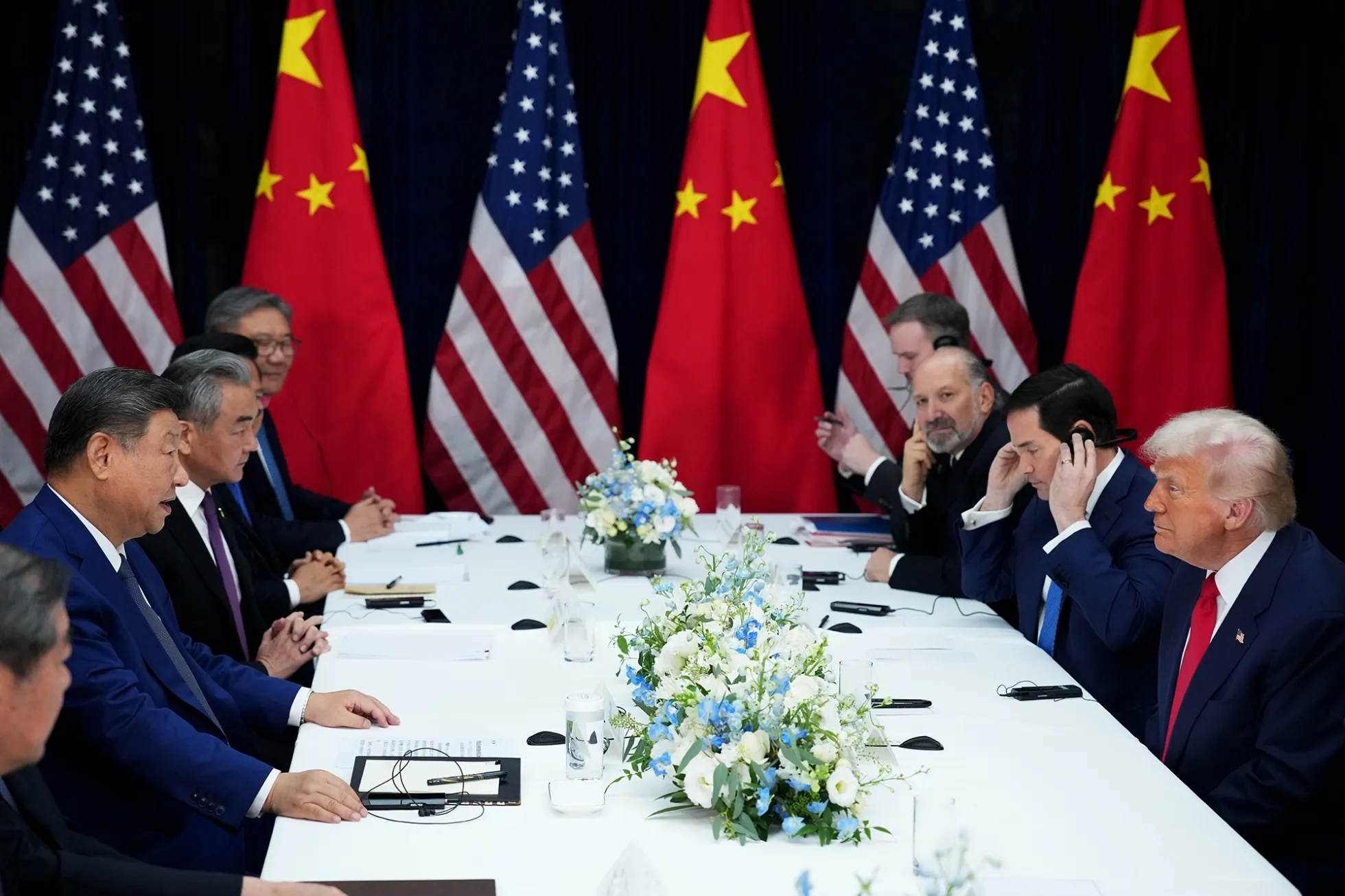 HIGHLIGHTS FROM THE US PRESIDENT TRUMP’S ASIA TRIP
HIGHLIGHTS FROM THE US PRESIDENT TRUMP’S ASIA TRIP
Seyda Nur OSMANLI 29.01.2026 -
 THE 16TH BRICS SUMMIT REGARDING CHINA AND THE GLOBAL SOUTH
THE 16TH BRICS SUMMIT REGARDING CHINA AND THE GLOBAL SOUTH
Seyda Nur OSMANLI 26.12.2024 -
 CHINA’S TAIWAN POLICY AND APPROACH TO THE CYPRUS QUESTION
CHINA’S TAIWAN POLICY AND APPROACH TO THE CYPRUS QUESTION
Seyda Nur OSMANLI 11.04.2025 -
 TURKIYE-CHINA RELATIONS: OPPORTUNITIES AND CHALLENGES
TURKIYE-CHINA RELATIONS: OPPORTUNITIES AND CHALLENGES
Seyda Nur OSMANLI 22.11.2024 -
 BANGLADESH: CHANGING INTERNATIONAL BALANCES IN SOUTH ASIA
BANGLADESH: CHANGING INTERNATIONAL BALANCES IN SOUTH ASIA
Seyda Nur OSMANLI 07.03.2025
-
 GENOCIDE AND GERMANY – II
GENOCIDE AND GERMANY – II
Mehmet Oğuzhan TULUN 18.10.2017 -
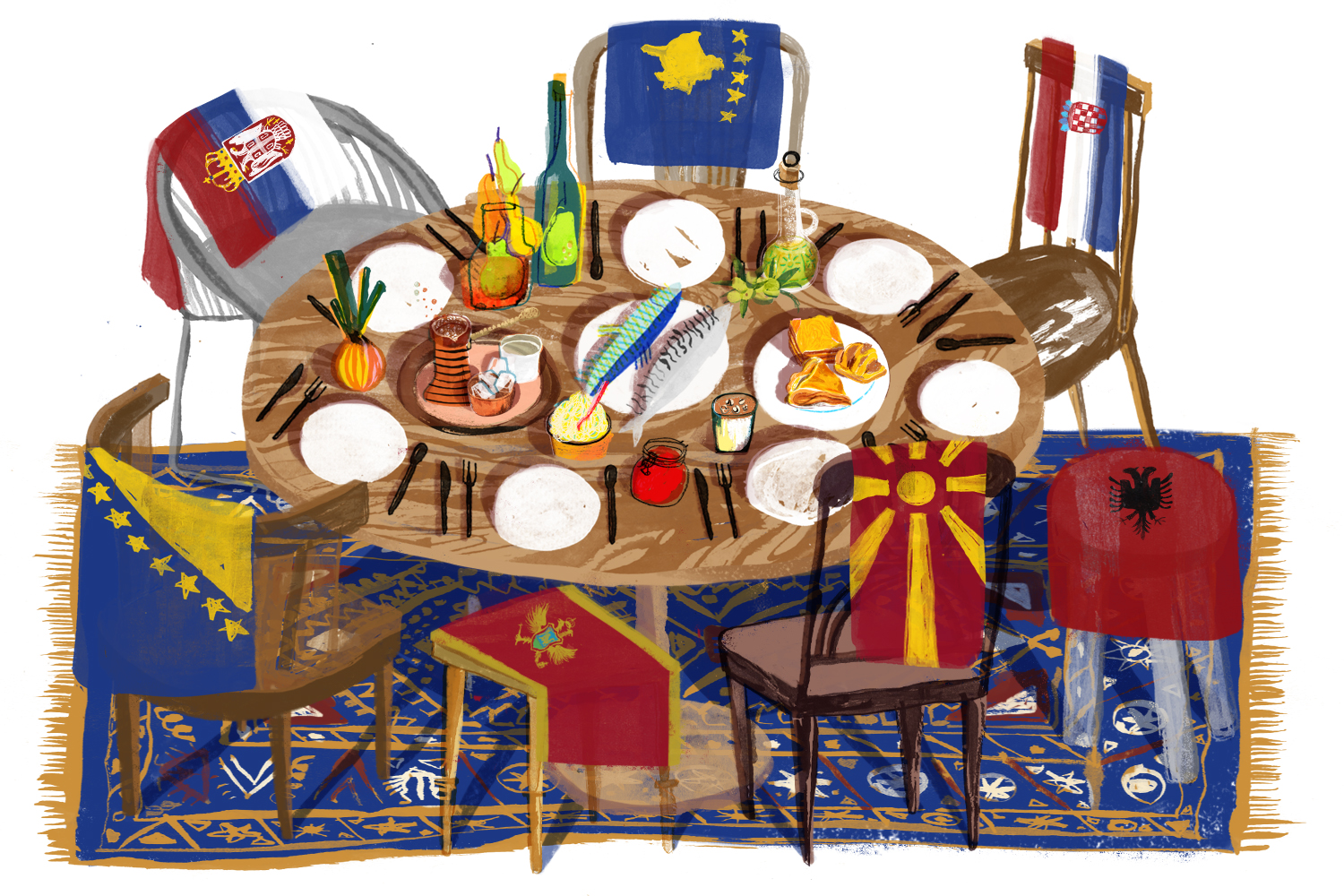 A MISNOMER: WESTERN BALKANS
A MISNOMER: WESTERN BALKANS
Teoman Ertuğrul TULUN 10.07.2017 -
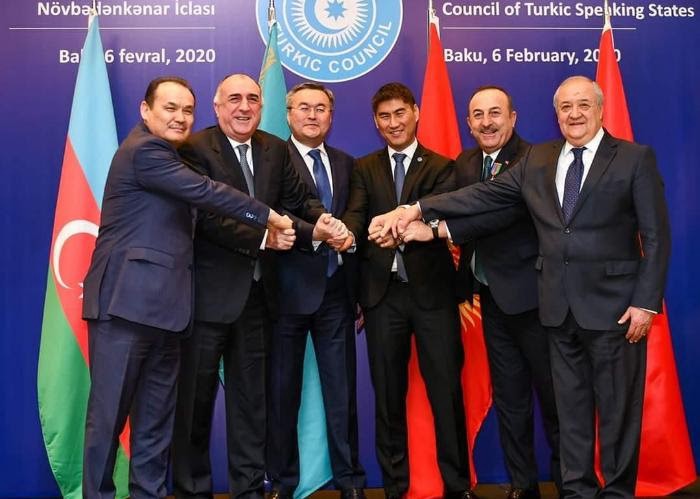 TURKIC COOPERATION IN THE CENTER OF EURASIA: THE TURKIC COUNCIL
TURKIC COOPERATION IN THE CENTER OF EURASIA: THE TURKIC COUNCIL
Gülperi GÜNGÖR 05.02.2021 -
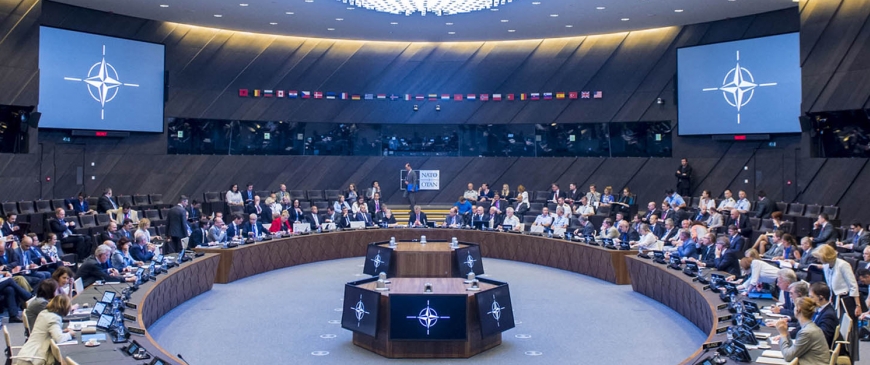 NATO AT SEVENTY
NATO AT SEVENTY
Aslan Yavuz ŞİR 03.04.2019 -
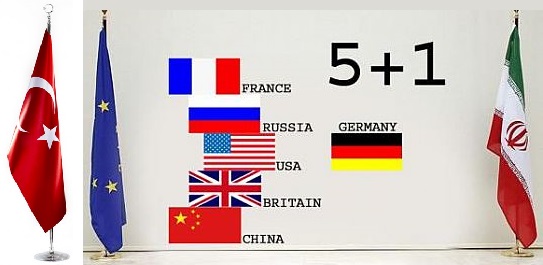 THE RELEVANCE OF NPT FOR TURKEY IN TIME OF THE IRAN NUCLEAR DEAL CRISIS
THE RELEVANCE OF NPT FOR TURKEY IN TIME OF THE IRAN NUCLEAR DEAL CRISIS
Mehmet Oğuzhan TULUN-Teoman Ertuğrul TULUN 22.05.2018
-
25.01.2016
THE ARMENIAN QUESTION - BASIC KNOWLEDGE AND DOCUMENTATION -
12.06.2024
THE TRUTH WILL OUT -
27.03.2023
RADİKAL ERMENİ UNSURLARCA GERÇEKLEŞTİRİLEN MEZALİMLER VE VANDALİZM -
17.03.2023
PATRIOTISM PERVERTED -
23.02.2023
MEN ARE LIKE THAT -
03.02.2023
BAKÜ-TİFLİS-CEYHAN BORU HATTININ YAŞANAN TARİHİ -
16.12.2022
INTERNATIONAL SCHOLARS ON THE EVENTS OF 1915 -
07.12.2022
FAKE PHOTOS AND THE ARMENIAN PROPAGANDA -
07.12.2022
ERMENİ PROPAGANDASI VE SAHTE RESİMLER -
01.01.2022
A Letter From Japan - Strategically Mum: The Silence of the Armenians -
01.01.2022
Japonya'dan Bir Mektup - Stratejik Suskunluk: Ermenilerin Sessizliği -
03.06.2020
Anastas Mikoyan: Confessions of an Armenian Bolshevik -
08.04.2020
Sovyet Sonrası Ukrayna’da Devlet, Toplum ve Siyaset - Değişen Dinamikler, Dönüşen Kimlikler -
12.06.2018
Ermeni Sorunuyla İlgili İngiliz Belgeleri (1912-1923) - British Documents on Armenian Question (1912-1923) -
02.12.2016
Turkish-Russian Academics: A Historical Study on the Caucasus -
01.07.2016
Gürcistan'daki Müslüman Topluluklar: Azınlık Hakları, Kimlik, Siyaset -
10.03.2016
Armenian Diaspora: Diaspora, State and the Imagination of the Republic of Armenia -
24.01.2016
ERMENİ SORUNU - TEMEL BİLGİ VE BELGELER (2. BASKI)
-
AVİM Conference Hall 24.01.2023
CONFERENCE TITLED “HUNGARY’S PERSPECTIVES ON THE TURKIC WORLD"









